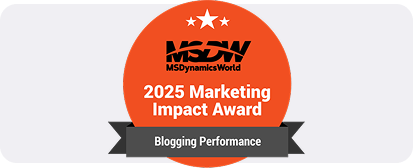Top Xero Alternatives in Canada | 2026 Competitors
Did you know Xero now serves more than 4.4 million subscribers across over 180 countries?
Even with that reach, many growing businesses in Canada eventually feel Xero no longer supports their next stage of growth. They start looking for tools that handle larger workloads, deeper reporting, and stronger cross-department coordination.
Canada’s ERP market is also expanding steadily, with a projected compound annual growth rate of 7.45 percent from 2024 to 2032. This growth reflects a clear shift toward platforms that bring every part of a business together and offer stronger features, better scale, and smoother alignment with daily operations.
With so many choices, it’s natural to feel unsure about which direction to take. This guide will walk through the strongest alternatives to Xero, along with their key features, advantages, and pricing. By the end, you’ll have a clearer sense of which system fits your business and what steps to take next.
Before discussing the list of alternatives, it is important to explore why there are so many businesses seeking a Xero alternative.
Why We Need Alternatives to Xero
As mentioned, businesses using Xero reach a point where they outgrow this wonderful tool and need something that can accommodate their scaling needs and business operations. Here are a few reasons why businesses might seek alternatives to Xero:
Scalability issues: Xero is great when your operations are small, but when your business becomes larger (more inventory, warehouses, users, and transactions), you hit functional or performance limits.
Missing features: Certain features are basic or add-on features. As an example, more advanced inventory management, production processes, or more in-depth ERP can be either nonexistent or expensive.
Cost factors: Pricing plans for Xero are higher depending on the number of features required. The total cost can be increased by adding transaction volumes.
Integration requirements: Companies increasingly want tightly integrated systems—accounting plus operations, inventory, warehouse, and CRM. If these aren’t built-in, using many third-party apps adds complexity.
Regulatory, localization, or specialized industry requirements: Businesses in Canada (or any other country) may need compliance, tax, multi-currency, warehouse, or supply chain functionality that more robust ERP accounting software provides.
After understanding why Xero might not always be ideal, here are the most ideal Xero alternatives to use, especially those that are used by small to medium businesses in Canada.
Top Alternatives to Xero
Dynamics 365 Business Central
Business Central is a complete ERP/accounting software from Microsoft. It consists of finance, operations, inventory, manufacturing, and service management. It integrates tightly with Microsoft 365, Power BI, Teams, etc. It is ideal when a company requires more than just accounting.
Features
- Financial management, general ledger, accounts receivable/payable
- Premium version of manufacturing and service management
- Stock management, multiple warehouses, inventory
- Native ecosystem integrations (Microsoft tools)
Benefits
- Good scalability for small and medium-sized businesses.
- Manages more complicated business processes (warehousing, multi-site, service).
- Single systems eliminate the use of numerous external applications.
- Localization: Supports Canadian laws, currencies, and taxes (based on configuration).
Pricing
- Essentials: CAD 95/user/month
- Premium: CAD 135.70/user/month
- Team Members: CAD 10.90/user/month
Zoho Books
Zoho Books is a cloud-based accounting product, which targets small and upcoming enterprises. It helps with invoices, expenses, and inventory, and it is compatible with other products of the Zoho suite.
Features
- Invoicing, quotes, and recurrence invoicing
- Expenses, journals, and bank reconciliation
- Vendor bills/purchase orders, inventory at upper level
- Profitability of a project, multi-currency, and custom workflows
Benefits
- Adjustable pricing levels, hence, you only pay what you require.
- Good for cash flow and invoice-intensive businesses.
- Strong support and customization, such as reports and automation.
Pricing
- Free: for solopreneurs and micro businesses
- Standard: CAD 15/month
- Professional: CAD 30/month
- Premium: CAD 40/month
- Elite: CAD 165/month
- Ultimate: CAD 290/month
Also Read: CRM Systems
Sage 50
Sage 50 is more of a traditional accounting software (desktop/cloud hybrid) that has excellent inventory, reporting, and user control. It is beneficial when you require greater control, need local data, or are working offline while still having access to cloud features.
Features
- Strong inventory and vendor/customer control
- Reporting, cash flow, and budget tools
- Multiple user options and higher-level modules in the premium versions
Benefits
- More control over data; can work offline or on the cloud
- Suitable when there are multiple users and complicated inventory or order requirements.
- Well-established solution that meets accounting standards and is often well-known to accountants.
Pricing
- Pro Accounting: CAD 73.50/month
- Premium Accounting: CAD 110.08/month
- Quantum Accounting: CAD 508.83
Also Read: Sage 50 Alternative
FreshBooks
FreshBooks is cloud software that specializes in invoicing, time tracking, project cost, and expense tracking. Extremely common with freelancers, consultants, and service businesses.
Features
- Unlimited invoices, estimates, and client portal
- Tracking of expenses, automatic late fee charges, and recurring invoices
- Project time tracking and client collaboration.
Benefits
- Minimal setup, very easy to use
- Good for service businesses, consulting, and contract work where time tracking is important.
- Transparent prices; low operating expenses
Pricing
- Lite: CAD 11/month
- Plus: CAD 17.5/month
- Premium: CAD 30/month
Wave
Wave is a free or very low-price small business, freelancer or sole proprietor accounting solution. It provides basic accounting, invoicing, and scanning of receipts. Good as a light alternative.
Features
- Simple double-entry accounting, bank reconciliation, invoice, and estimate mailing
- Receipt scanning, mobile apps
- Some pay-per-use services (e.g., payments, payroll) are region-dependent
Benefits
- Minimal prices (not always paid)
- Easy, minimal learning curve
- Great with small businesses that do not require advanced ERP functionality
Pricing
- Starter Plan: CAD 0
- Pro Plan: CAD 19/month
Also Read: Wave Accounting vs QuickBooks
QuickBooks
Although many people view QuickBooks as equivalent to Xero, it is not considered a direct competitor; in some businesses, QuickBooks is more widely recognized, and its integrations or local support may be more compatible.
Features
- Strong invoices, payments, and expenses
- Numerous third-party connections, strong bank fees
- Inventory, job costing, and possibly finer control are available in desktop versions
Benefits
- Widespread use with accountants: many accountants in Canada are familiar
- Rich ecosystem, many add-ons
- Scalable implementation (cloud or desktop)
Pricing
- Easy Start: CAD 28/month
- Plus: CAD 95/month
- Advanced: CAD 19/month
Also Read: Dynamics 365 QuickBooks Integration
Sage Accounting
Sage Accounting (also Business Cloud Accounting) is powerful Canadian cloud software, best for small businesses. It offers the most straightforward accounting, invoicing, expense management, GST/HST, and a bilingual interface.
Features
- Unlimited invoices, bank reconciliation, and tracking of expenses
- Multi-currency (in higher plans), inventory monitoring
- English and French assistance
Benefits
- Local compliance and support (good Canadian tax / bilingual needs)
- Transparent pricing and SMB-targeted features
- Ease of use; a good steppingstone when you climb in the future
Pricing
- Accounting start: CAD 5.25/month
- Accounting Standard: CAD 11.75/month
- Accounting Plus: CAD 17.00/month
Methodology
Business Needs Analysis: Assess the size, industries, and growth patterns of your company to determine the key elements, including accounting, invoicing, inventory, payroll, and reporting.
Feature Comparison: Evaluate basic functions, such as accounting through ERP, inventory management, financial reporting, and multi-currency, to make sure that the solution satisfies your operational needs.
Pricing & Value: Compare the subscription plans, hidden expenses, and overall ROI to identify what is the most economical way to solve your business.
Scalability & Support: Make sure that the platform is scalable to your business and has credible vendor assistance and meets the standards of the Canadian laws.
User Experience and Integration: Determine ease of use, time to onboard, and ability to integrate with other tools, such as CRM, payroll, or reporting systems.
Authority Records and Security: Select platforms that have tested official documentation, are security compliant, and are updated on a regular basis to protect your accounting information.
Choose the Right Alternative for your Business
With the best alternatives to Xero having been discussed, now the question is, which one will best suit your business?
It will depend on the business size, industry, and growth plans. Cloud-based applications such as Wave or FreshBooks could work well with freelancers or micro-businesses due to their simplicity and low cost.
However, basic accounting software is not always sufficient for Canadian small and mid-sized businesses that have recently scaled. A Statistics Canada report shows that 47.2% of businesses adopted at least one of the highly developed digital technologies in 2022, and one of the most adopted is ERP solutions. This demonstrates that firms are seeking solutions that are integrated finance, supply chain, sales, and operations platforms.
That is where Microsoft Dynamics 365 Business Central presents itself as the most appropriate Xero alternative when it comes to SMBs. Contrary to the tools that only serve one purpose, Business Central is an ERP accounting system, meaning that it can do more than just keep books; it also integrates inventory, warehouse, reporting, CRM, and compliance in one solution. Supported with the security and scalability of Microsoft, it makes sure that a business does not outgrow the software.
Conclusion
Xero is still a reliable choice for small businesses' basic needs. However, as companies expand, or their needs expand into inventory, warehouses, more users, and more complicated reporting, you will find better offers than Xero for small businesses.
One of them, Dynamics 365 Business Central, is a powerful ERP accounting solution, which combines accounting, inventory, operations, and useful integrations into a single platform. The initial investment can be pricier; however, the extended scalability, integration, and inbuilt capabilities may compensate.
In case of a need for Dynamics 365 implementation and support, Dynamics Square will always be the first choice, as it provides professional advice and trusted solutions.
At Dynamics Square, we deal with businesses of Canada (as well as other countries) in their migration out of Xero (and other accounting solutions) onto Dynamics 365 Business Central.
We assist in:
- Needs assessment to determine what you really need.
- The implementation of Business Central according to your operations (inventory, warehouse, supply chain, finance).
- Move your data from Xero with ease, and no financial history will be lost.
- Educating your employees to make them proficient with the new system.
- Providing continuous support so that you only need to resolve an issue in time, update, and ensure that you always adhere to the local tax/regulation.
Ready to upgrade from Xero to a scalable ERP?
Dynamics Square makes your move to Business Central easy—from setup to data migration and support.
Connect with us via call +1 778 381 5388 or you can also email us at info@dynamicssquare.ca and get started.



